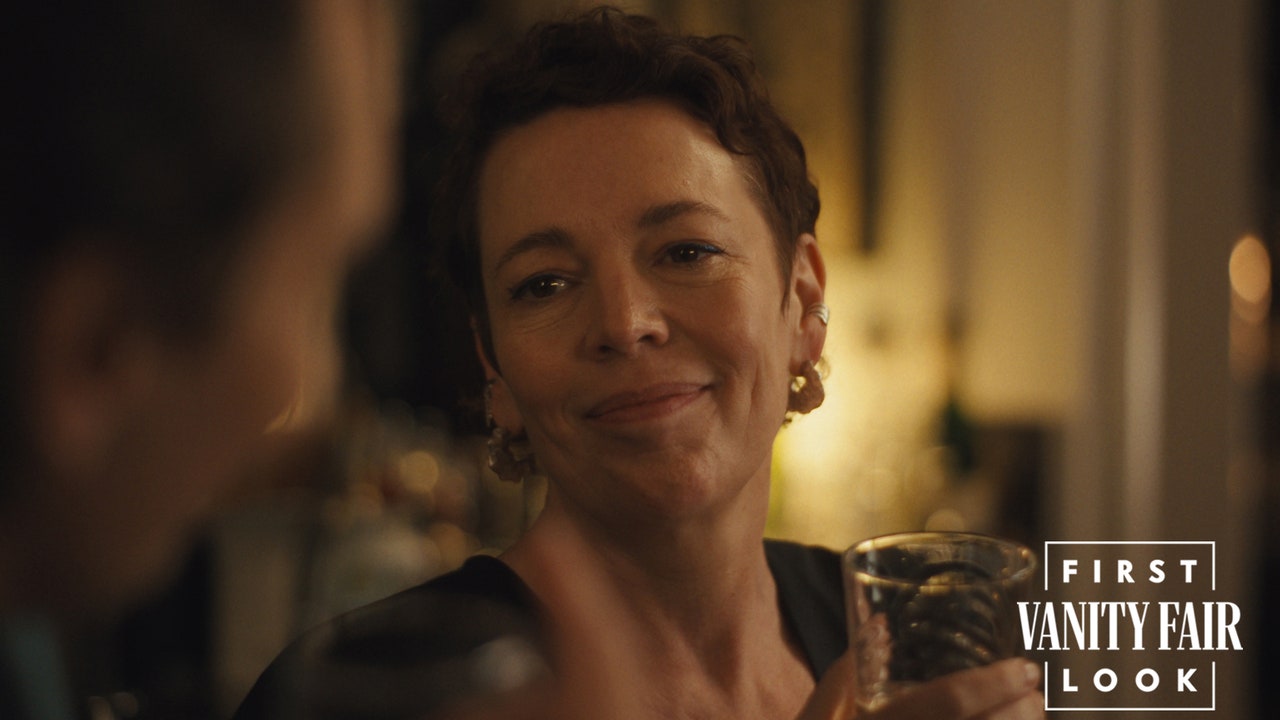For an actor who made her name with brilliant comic performances on the likes of Peep Show and Green Wing before winning an Oscar for The Favourite,
For an actor who made her name with brilliant comic performances on the likes of Peep Show and Green Wing before winning an Oscar for The Favourite, Olivia Colman has made a sudden habit of breaking your heart. This trend arguably reaches its peak in the moving family drama Jimpa, which premieres Thursday at the Sundance Film Festival. As the daughter of a gay-rights activist (John Lithgow) facing the end of his life, Colman is a heated, teary wonder. “I’ve never really struggled with getting to the emotional bits,” she tells Vanity Fair in her first interview about the film. “I’m an overly emotional person.”
You can feel a great deal of love going into Jimpa from all directions. It’s a deeply autobiographical project from Australian director Sophie Hyde, who most recently directed Emma Thompson to great acclaim in Good Luck to You, Leo Grande. Hyde has both an impassioned queer parent and a trans child, and brings that experience to the screen in Jimpa. Colman plays Hannah, a woman living in Adelaide, Australia, who functions as a stand-in for the filmmaker. The movie follows her as she takes her child, Frances (played by Hyde’s own child, Aud Mason-Hyde), to Amsterdam to visit Hannah’s boisterous father—affectionately referred to as Jimpa. The reunion brings about a sprawling, tragicomic examination of queer life and chosen families across generations.
Colman learned a lot while making Jimpa—about herself, about the LGBTQ+ community, and about her director turned friend.
Vanity Fair: What did you like about Sophie when you first met her over Zoom? What made you want to jump into this project with her?
Olivia Colman: Well, she’s a proper actor’s director. To sound really wanky, you need to feel trusted and unthreatening to be able to do a lot of things that are asked of you, and she really understood that. I thought this would be a really enjoyable process and I’d make a good friend out of it. Plus, I’d never been to Australia. I don’t really like leaving home, so that was quite brave of me, I thought. I loved the story, I loved the love behind it—I liked that she was working with Aud, their child. That’s, I think, a good sign. If you’re willing to take your kid on a journey like that, then it’s got to be a nice, loving sort of environment.
For someone who doesn’t love to leave home, you go to Australia, you go to Amsterdam—you’re going all over.
I know. What an idiot.
Australia is particularly far away. How did you experience it?
It was only three weeks in Australia, and that was manageable. I was away on Mother’s Day, which was a bit much. I did have a cry, but everyone was so nice. My husband and the kids asked if they could arrange some flowers. This impoverished man arrived at my hotel door with some flowers and a chocolate cake, and I burst into tears. He must have thought, Oh my God.
While you’re away from home, you’re also playing this incredibly emotional material related to family and loss. Did it hit you harder?
Well, yeah, and I lost my dad during COVID, so that was quite a lot. Doing some of the stuff [in the hospital], holding John’s hands—they were very nice about it, everyone, but every now and again, I’d say, “Sorry, I’m crying much too much. I know I am, but I’m going to a funny place.” Maybe it helped that I was away from home. I don’t know. I don’t want that to become a regular thing.
The crews that we had in Australia and Amsterdam really understood how Sophie worked, and Sophie is very exquisite with the way things are done. It’s all about the emotion, and you feel like you can do what you need to do and she’ll get it. There weren’t loads of takes, which I like. I get very frustrated with loads of takes—I unravel a bit.
I can imagine, especially when it’s material this hefty.
Yeah. Can you imagine doing that 15 times?
When you first spoke with Sophie, did she indicate that you would be playing a version of her? How did you interpret the character and their autobiographical components?
I felt I was playing her, and then she’d always go, “Well, it’s a version.” It was very meta and had a lot of Sophie’s experiences, but also mixed in with a bit of artistic license. I met Sophie’s real mum, and the real Jim did look very much like John, and it was pretty. A lot of his fights for visibility and for the rights of the gay community were exactly what her dad did. I felt like I was being mainly Sophie. More than that, it was just a really pretty story, and genuinely, Sophie did have a life trying to avoid conflict, even with this stuff. All the lines in it, like “my dad being gay and my dad being my dad were all one and the same”—she did talk like that about her lovely dad.

COMMENTS